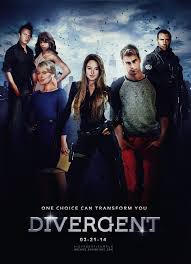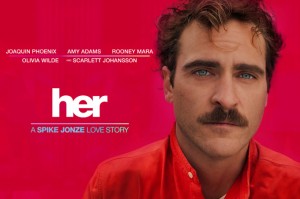Under the Skin
Posted on April 12, 2014 at 7:40 pm
 This haunting, provocative film is the essence of what it means to call a work of art “adult,” not because of its explicit nudity and sexual situations but because of the way it presents and engages with them. It is fearless, it assumes the audience would rather ponder the questions than be fed the answers, and it has a performance of extraordinary sensitivity and insight from Scarlett Johansson as — well, we are not sure exactly what her character is or indeed if character is the right word.
This haunting, provocative film is the essence of what it means to call a work of art “adult,” not because of its explicit nudity and sexual situations but because of the way it presents and engages with them. It is fearless, it assumes the audience would rather ponder the questions than be fed the answers, and it has a performance of extraordinary sensitivity and insight from Scarlett Johansson as — well, we are not sure exactly what her character is or indeed if character is the right word.
We are unsure of what is going on right from the beginning, a beam of light with a dot that looks like an eye test. Is it a faraway planet or a star? Is it coming toward us? The only thing we know about where we are is that we will have to figure it out for ourselves and will never be sure if we are right. A man pulls the body of a fishnet stocking-wearing young woman out of a wooded area and loads her into a van. We then see a completely blank place, as though standing in front of a seamless, unpainted backdrop, not so much a space as an absence of everything except a naked young woman removing the clothes from the body. She is clinical and efficient manner if not especially experienced. Soon, she is wearing the clothes and shopping for more, including a fur jacket.
The young woman is beautiful, desirable. She drives around Glasgow, asking men for directions in a light London accent. As they chat, she finds out if they are on their way to meet friends or go home to family. When one says he is alone, she invites him to ride with her. Soon they are back in another void, this one black. He walks toward her, removing his clothes. She walks backward. In one of the most striking images we will see this year, she stays on one level as he begins to sink into liquid. And soon she is out in the van again, still asking for directions, luring another man to his death.
As the woman/alien (we never learn her name) goes about her tasks, at first she is like The Terminator, utterly single-minded, proceeding exactly according to formula. But she begins to develop — what is it? — doubts? Curiosity? She moves from the fur jacket to leather, to cloth, as she begins to be less willing? less able? to keep killing these men. She tries to partake of some human pleasures, but cannot, and finds herself lost, not one or the other or anything in between.
The imagery is powerful, with much made of eyes, reflections, blankness, and the Scottish landscape. Johansson gives a performance of tremendous subtlety, depth, sensitivity, and control, perhaps a reflection of years spent, like the creature she portrays, in the superficial seduction of being a star.
Adapted from the novel by Michel Faber by director Jonathan Glazer, some of the dialog is improvised and some of the men asked for directions did not know they were being filmed.
Parents should know that this movie includes very adult material, with graphic nudity and explicit sexual references and situations and violence including sexual assault. Characters drink, smoke, and use strong language.
Family discussion: Who is this character? Who is her companion? Why are they doing this? What makes her think about trying some of what humans enjoy?
If you like this, try: “Birth” by the same director, and some other films about aliens coming to earth like “Mars Attacks,” “Starman” and “What Planet Are You From?”



